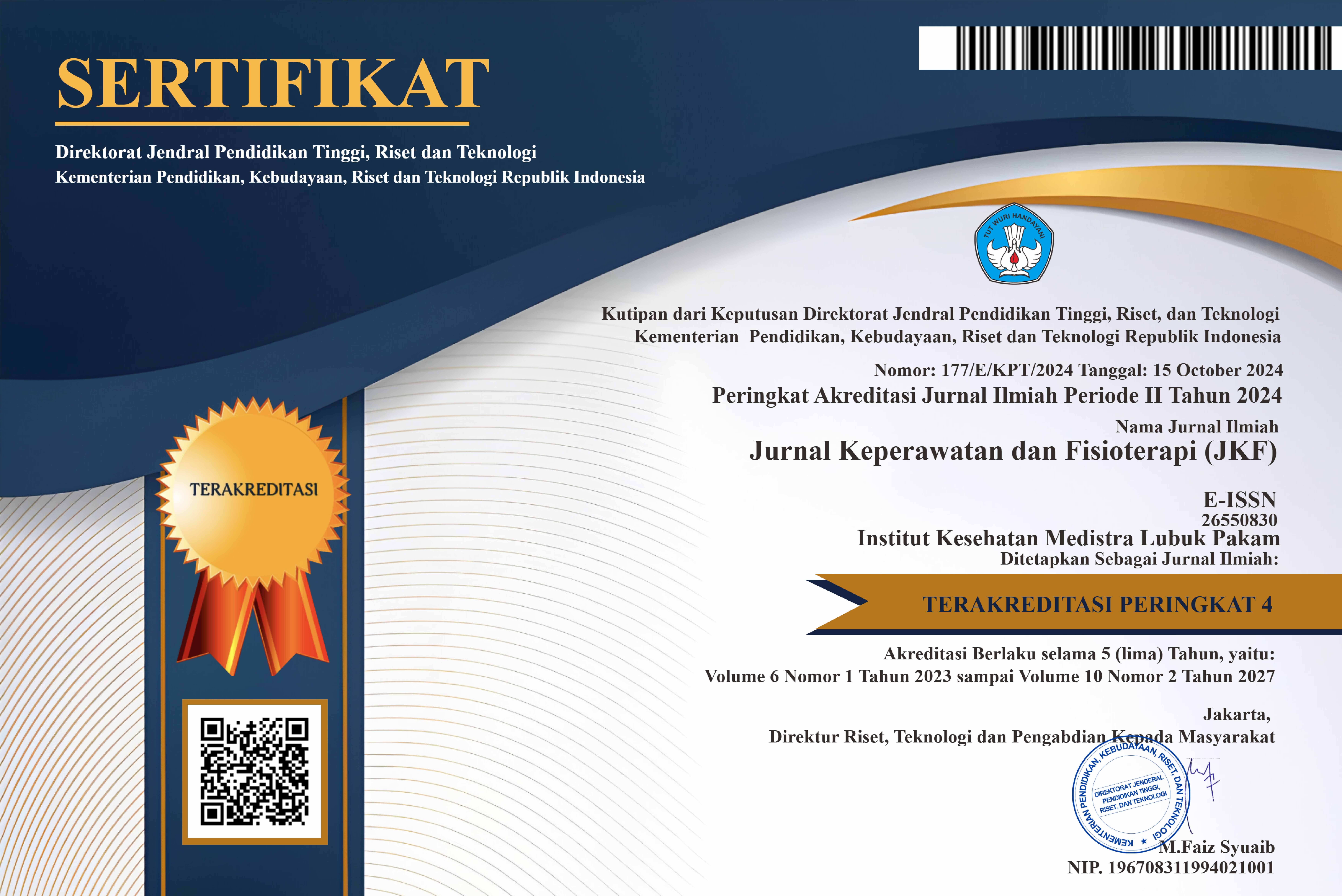Literature Review of Technology-Based Therapy for Schizophrenia Sufferers
DOI:
https://doi.org/10.35451/jkf.v7i2.2577Keywords:
Schizophrenia, Cognitive Therapy, Technology-Based Therapy, Computer TherapyAbstract
Schizophrenia is a type of mental disorder characterized by distortions in thinking, perception, emotion, language, sense of self, and behavior which can be cured if given effective psychosocial treatment and therapy by improving life skills and social skills training.
This article aims to find out what technology-based therapies can be given to people with schizophrenia to help their healing process. Literature review was taken using three data bases namely Science Direct, EBSCOhost, and Proquest with the keywords Schizophrenia, Cognitive Therapy, Technology-Based Therapy, Computer Therapy. The PRISMA method was used for selection by establishing inclusion and exclusion criteria. In the end, based on the above criteria, 10 articles were determined to be analyzed. Technology-based therapy for people with schizophrenia is one of the main focuses that needs to be considered when undergoing treatment, both in hospitals, health centers, rehabilitation centers or at the patient's home to support the healing process of people with schizophrenia. There are several technologies that can be given to people with schizophrenia based on technology, either in the form of hardware or software. The most important thing is, the accuracy of choosing the therapy that will be given to the patient before it is given to the patient. With this technology, it can be used as a solution for providing therapy to schizophrenics during this pandemic.
Downloads
References
WHO. (2019). Schizophrenia. Reports. Https://Www.Who.Int/En/News-Room/FactSheets/Detail/Schizoph.
De Mare, A., Cantarella, M., & Galeoto, G. (2018). Effectiveness of Integrated Neurocognitive Therapy on Cognitive Impairment and Functional Outcome for Schizophrenia Outpatients. Schizophrenia Research and Treatment, 2018. https://doi.org/10.1155/2018/2360697
Olivia, W., Hardayati, Y. A., Keperawatan, F. I., Indonesia, U., Barat, J., Tinggi, S., Kesehatan, I., Carolus, S., Pusat, J., Khusus, D., & Jakarta, I. (2020). Peningkatan harga diri klien skizofrenia melalui praktik klinik online. 3(4), 481–494.file:///C:/Users/user/Downloads/691-2536-2-PB (1).pdf
Rismawan, W. (2018). Teknologi?: Internet Untuk Pengobatan Gangguan Jiwa. Warstek Media. https://warstek.com/internetjiwa/
Casey, L. M., Oei, T. P. S., Raylu, N., Horrigan, K., Day, J., Ireland, M., & Clough, B. A. (2017). Internet-Based Delivery of Cognitive Behaviour Therapy Compared to Monitoring, Feedback and Support for Problem Gambling: A Randomised Controlled Trial. Journal of Gambling Studies, 33(3), 993–1010. https://doi.org/10.1007/s10899-016-9666-y
Raffard, S., Bortolon, C., Khoramshahi, M., Salesse, R. N., Burca, M., Marin, L., Bardy, B. G., Billard, A., Macioce, V., & Capdevielle, D. (2016). Humanoid robots versus humans: How is emotional valence of facial expressions recognized by individuals with schizophrenia? An exploratory study. Schizophrenia Research, 176(2–3), 506–513. https://doi.org/10.1016/j.schres.2016.06.001
Reeder, C., Huddy, V., Cella, M., Taylor, R., Greenwood, K., Landau, S., & Wykes, T. (2017). A new generation computerised metacognitive cognitive remediation programme for schizophrenia (CIRCuiTS): A randomised controlled trial. Psychological Medicine, 47(15), 2720–2730. https://doi.org/10.1017/S0033291717001234
Zhu, X., Fan, H., Fan, F., Zhao, Y., Tan, Y., Yang, F., Wang, Z., Xue, F., Xiao, C., Li, W., Li, Z., Ma, L., Zou, Y., & Tan, S. (2020). Improving social functioning in community-dwelling patients with schizophrenia: a randomized controlled computer cognitive remediation therapy trial with six months follow-up. Psychiatry Research, 287(December 2019), 112913. https://doi.org/10.1016/j.psychres.2020.112913
Hyde, B., Thomas, M., Gullifer, J., & Dark, F. (2020). Trial Implementation of CIRCuiTS Cognitive Remediation Therapy for People with Schizophrenia in Rural Australia: Therapists Experiences. Journal of Psychosocial Rehabilitation and Mental Health, 7(1), 5–14. https://doi.org/10.1007/s40737-019-00152-w
Iwata, K., Matsuda, Y., Sato, S., Furukawa, S., Watanabe, Y., Hatsuse, N., & Ikebuchi, E. (2017). Efficacy of cognitive rehabilitation using computer software with individuals living with schizophrenia: A randomized controlled trial in Japan. Psychiatric Rehabilitation Journal, 40(1), 4–11.https://doi.org/10.1037/prj0000232
Vázquez-Campo, M., Maroño, Y., Lahera, G., Mateos, R., & García-Caballero, A. (2016). E-Motional Training®: Pilot study on a novel online training program on social cognition for patients with schizophrenia. Schizophrenia Research: Cognition, 4, 10–17.
Downloads
Published
Issue
Section
License
Copyright (c) 2025 Ni Ketut Citrawati, Dewa Gede Candra

This work is licensed under a Creative Commons Attribution 4.0 International License.
Copyright in each article is the property of the Author.


























